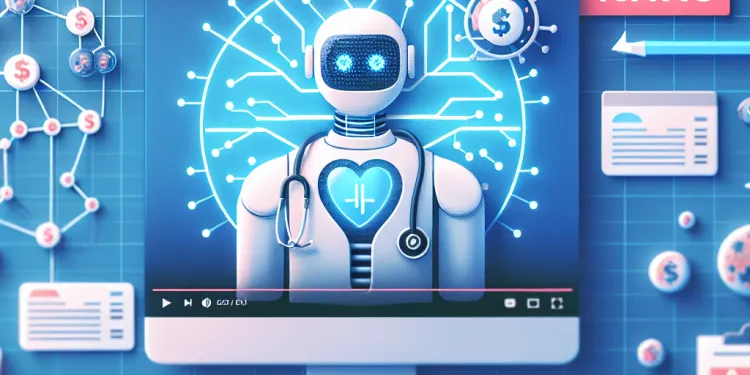
Find Help
More Items From Ergsy search
-

NHS Utilizes AI to Prioritize High-Risk Patients on Waiting Lists
Relevance: 100%
-
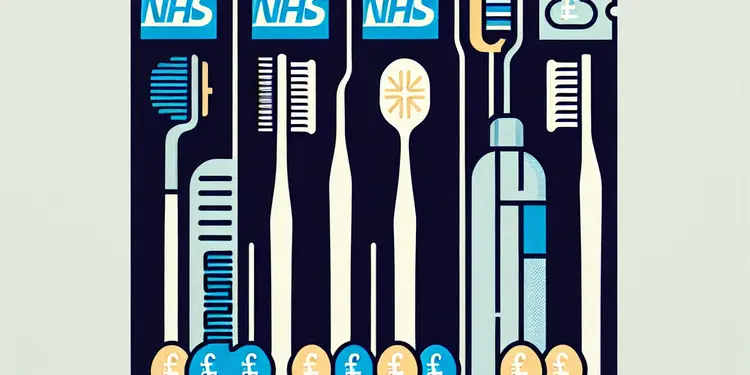
Are there waiting lists for NHS dental treatment?
Relevance: 67%
-

Can online patient forums provide reliable information on waiting times?
Relevance: 41%
-
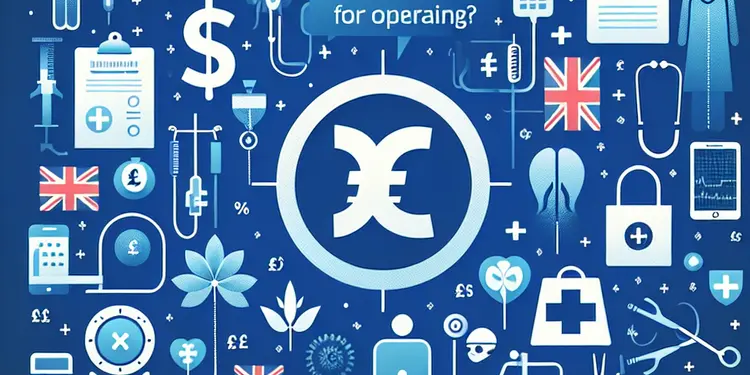
Are waiting times for operations the same across all hospitals?
Relevance: 40%
-
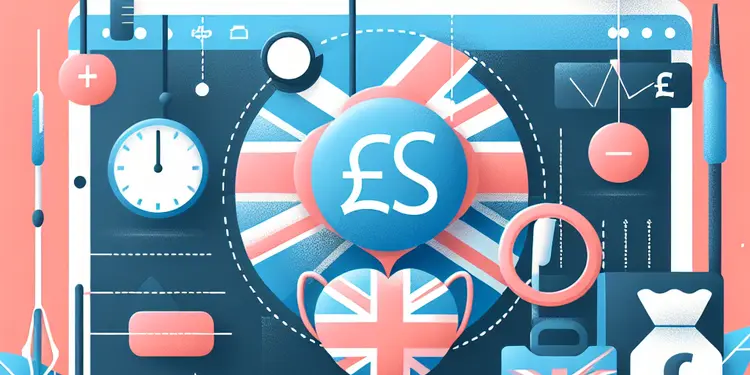
How can I advocate for a shorter wait time for my surgery?
Relevance: 38%
-
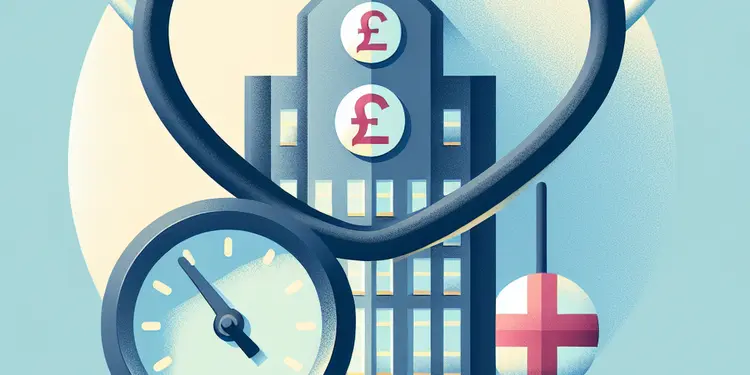
What factors affect the waiting time for my surgery?
Relevance: 38%
-
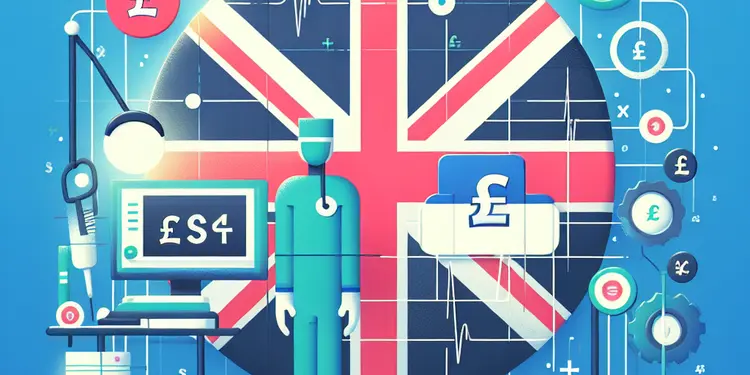
Will changing my surgery date impact my waiting time?
Relevance: 37%
-
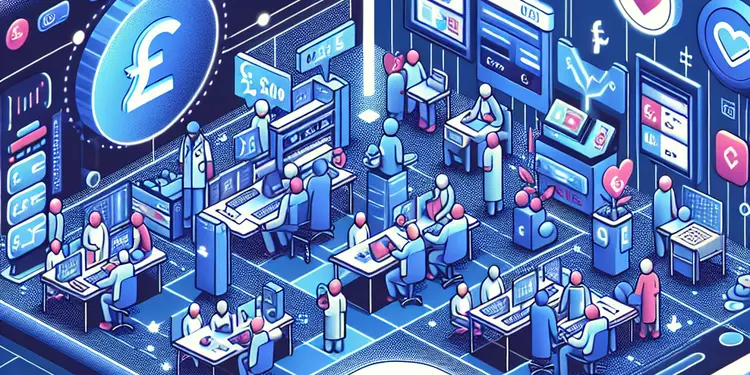
Are there apps available to check operation waiting times?
Relevance: 37%
-

Are there specific resources for urgent operation waiting times?
Relevance: 37%
-

Can I get information on average waiting times for operations?
Relevance: 36%
-
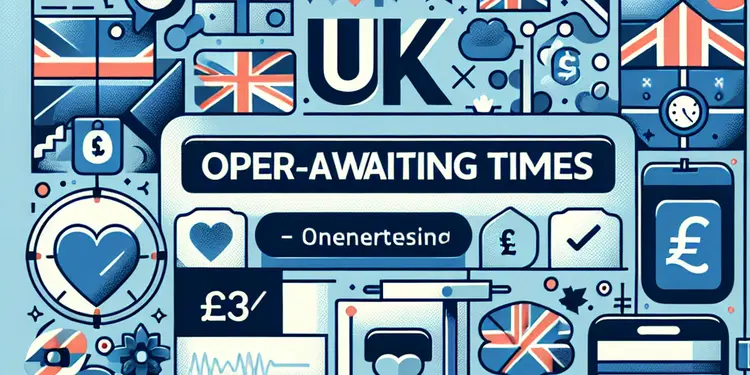
How often are operation waiting times updated?
Relevance: 34%
-
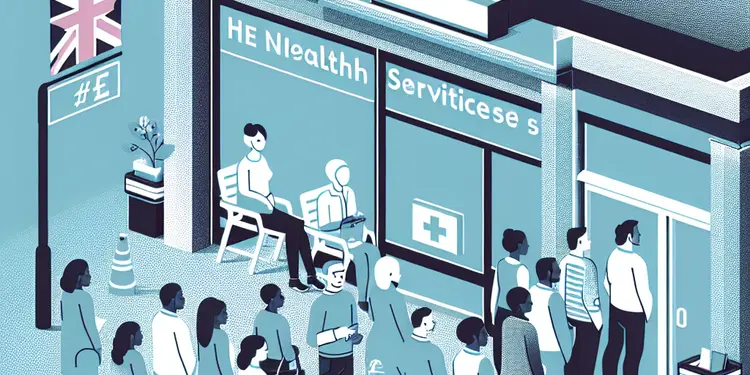
How can I find current waiting times for operations in my local hospital?
Relevance: 34%
-
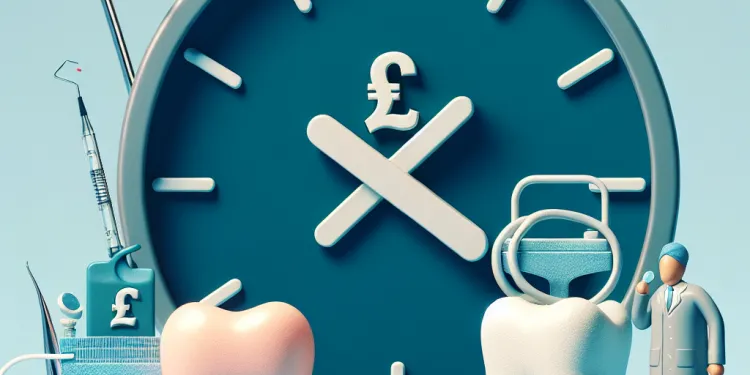
How long will I have to wait for an NHS dental appointment?
Relevance: 33%
-

Liver transplant - Patient experience - Part 1 (Colin)
Relevance: 33%
-
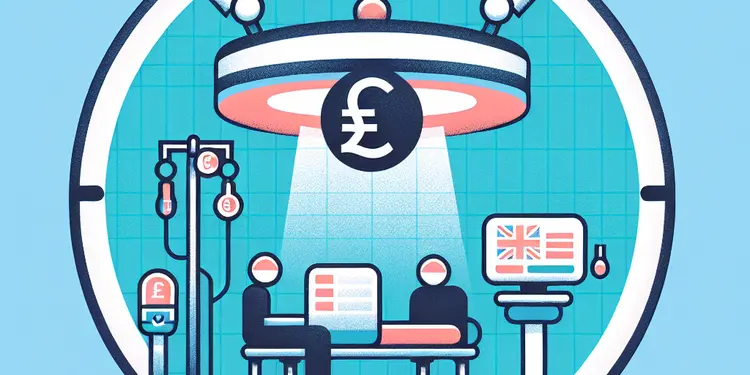
Is there a national database for checking waiting times for surgeries?
Relevance: 33%
-

Can I appeal a long waiting time for my operation?
Relevance: 33%
-

How can I find information on waiting times for an operation in my area?
Relevance: 33%
-

Can I find operation waiting times in healthcare performance reports?
Relevance: 32%
-
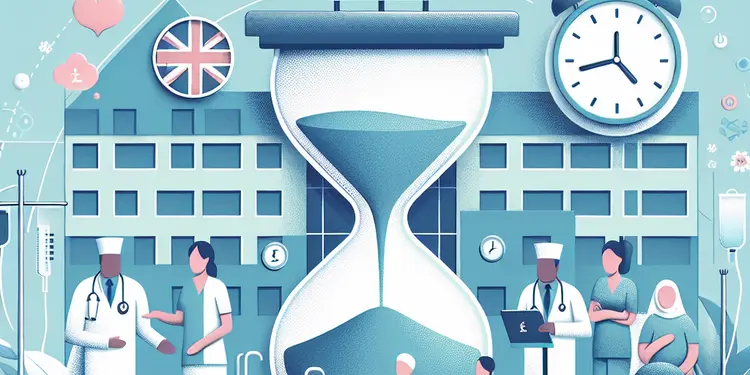
NHS Faces Backlash Over Record-Breaking Surgery Waiting Times
Relevance: 32%
-
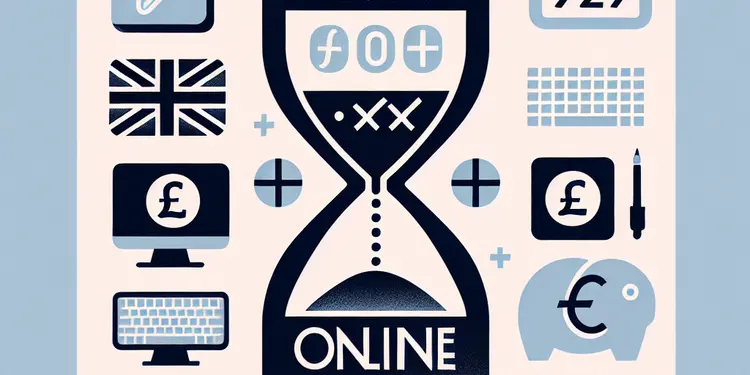
Can I check the waiting time for a specific procedure online?
Relevance: 32%
-

Kidney transplant waiting stories – DJ Ace and Lauren | NHS Organ Donation
Relevance: 32%
-
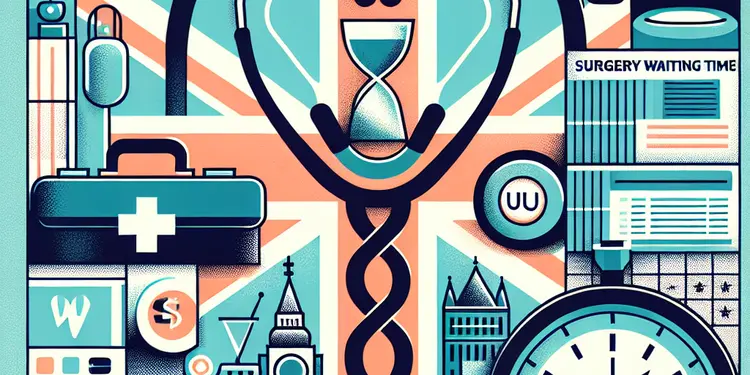
Who should I contact for questions about surgery waiting times?
Relevance: 31%
-

Does my doctor have access to operation waiting times?
Relevance: 31%
-
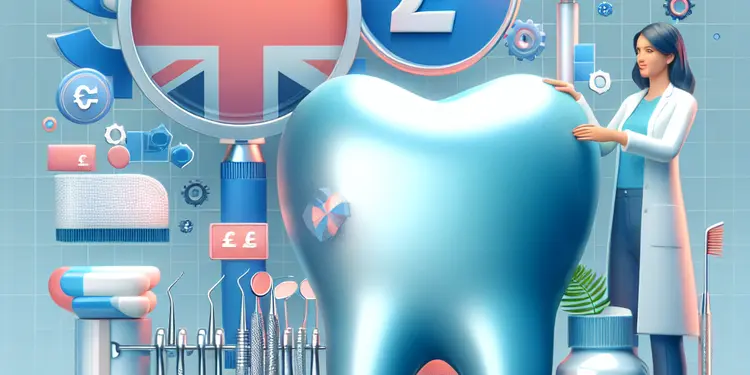
What if there are no NHS dentists accepting new patients?
Relevance: 31%
-

Do private hospitals have shorter waiting times for operations?
Relevance: 31%
-

Can I shorten my waiting time by choosing a different hospital?
Relevance: 30%
-

Can I use private dental services if I'm on the NHS list?
Relevance: 30%
-

Will my health insurance provider have information on waiting times?
Relevance: 29%
-
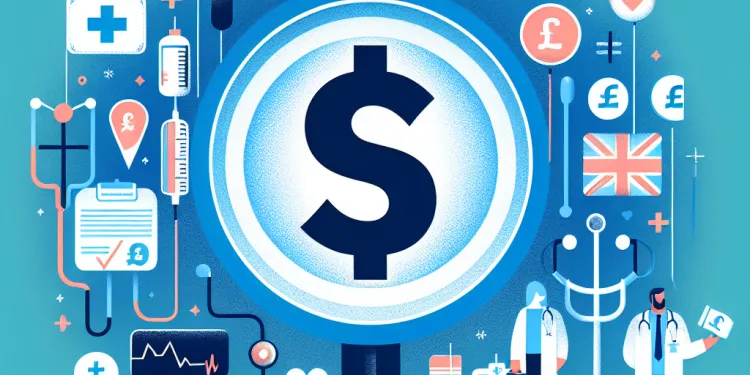
How the Shortage of GPs is Affecting Patient Care Across the UK
Relevance: 28%
-
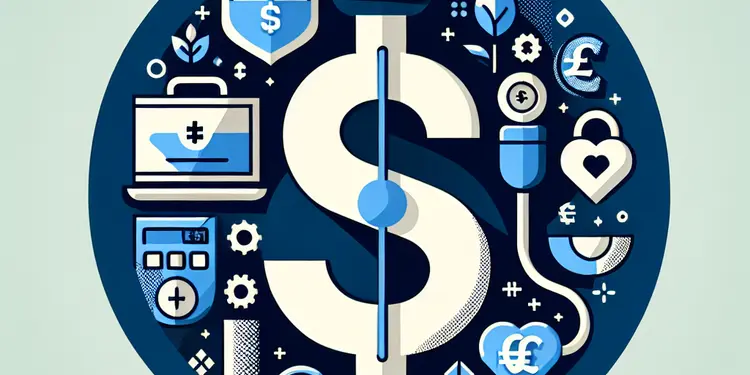
How can primary care support workers contribute to patient care improvement?
Relevance: 27%
-

What legal rights do I have as a medical patient in the EU?
Relevance: 26%
-

Do fake drugs often have missing or incorrect ingredient lists?
Relevance: 25%
-

How long should I wait to read the results of a pregnancy test?
Relevance: 25%
-

How can I find an NHS dentist for an appointment?
Relevance: 24%
-
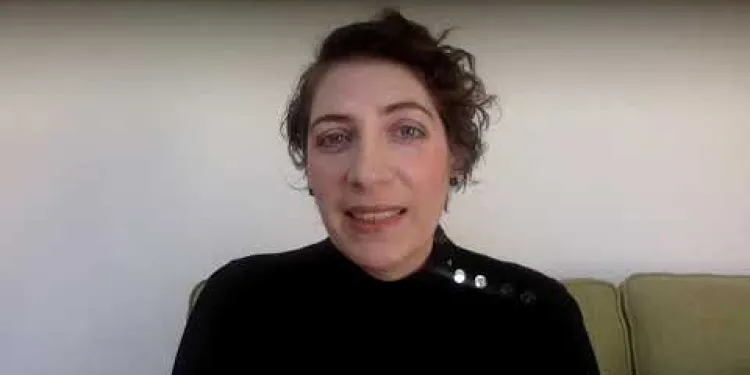
World Pancreatic Cancer Day - No Time to Wait
Relevance: 23%
-

Heart-lung transplant patient shares her story
Relevance: 23%
-

Hernias and their Treatments - A guide for patients
Relevance: 22%
-

Positioning for Breathless Patient
Relevance: 22%
-
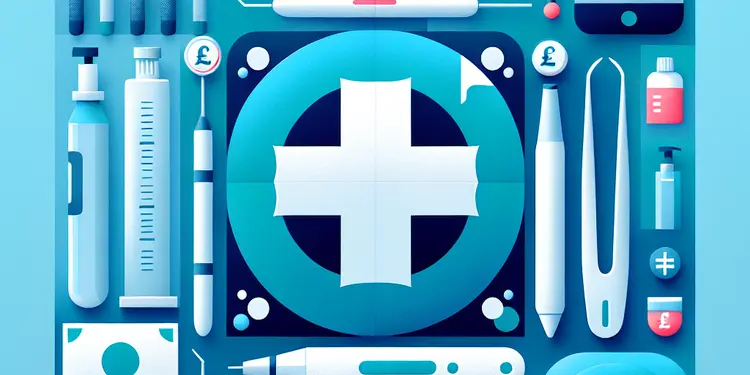
How can I find an NHS dentist?
Relevance: 22%
-

Patient video: What to expect when having a bone scan
Relevance: 22%
NHS Utilizes AI to Prioritize High-Risk Patients on Waiting Lists
Introduction to AI in Healthcare
The National Health Service (NHS) in the United Kingdom has been at the forefront of integrating cutting-edge technology into healthcare for improved patient outcomes. Recently, it has begun deploying Artificial Intelligence (AI) to address one of its most pressing issues: lengthy waiting lists. The AI system is designed to identify and prioritize high-risk patients, ensuring that those with the most urgent needs receive timely care.
Addressing Lengthy Waiting Lists
Waiting lists have been a critical challenge for the NHS, especially in the aftermath of the COVID-19 pandemic, which exacerbated existing backlogs. Many patients face prolonged wait times for critical treatments, causing further deterioration in their health. AI algorithms are now being used to analyze patient data efficiently, identifying those at greatest risk of adverse outcomes if their treatment is delayed. This allows healthcare providers to allocate resources effectively and reduce wait times for high-priority cases.
How AI Technology Works
The AI system employed by the NHS leverages machine learning models trained on vast amounts of historical patient data. These models evaluate various health indicators, such as age, medical history, and current condition, to predict the potential risks associated with delayed treatment. By processing this information at unprecedented speed and scale, the AI system can make more informed decisions about patient prioritization than traditional methods.
Benefits to Patients and Healthcare Providers
The implementation of AI technology brings numerous benefits to both patients and healthcare providers. Patients with severe conditions can receive accelerated treatment, leading to improved health outcomes and reduced progression of diseases. For healthcare providers, AI streamlines the decision-making process, enabling more strategic allocation of limited resources. This ultimately fosters a more efficient healthcare system that can better meet the needs of its population.
Future Outlook and Challenges
While AI offers promising solutions for prioritizing patient care, it also presents certain challenges. Concerns regarding data privacy and algorithm transparency need to be addressed to build public trust. Moreover, continuous evaluation of AI systems is necessary to ensure accuracy and fairness in patient prioritization. As these technologies evolve, the NHS is poised to further enhance its capacity to deliver timely and effective healthcare services, setting a benchmark for other nations.
NHS Uses Computers to Help High-Risk Patients on Waiting Lists
How Computers Help in Healthcare
The National Health Service, or NHS, is in the United Kingdom. It is using new technology to make healthcare better. They are now using something called Artificial Intelligence, or AI, to help with long waiting lists. This means they use computers to find patients who need help the fastest. This way, those who are very sick can see a doctor sooner.
Fixing Long Waiting Lists
Many people have to wait a long time to see a doctor, especially after COVID-19 made things worse. Waiting too long can make people sicker. Now, computers are used to look at patient information to find those who need help quickly. This helps doctors give the right care to those who need it most and makes waiting times shorter.
How AI Computers Work
The NHS is using smart computers that learn from lots of old patient data. These computers look at different things like age, past health problems, and how someone is doing right now. They guess who might get sicker if they wait too long for treatment. These smart computers can work very fast and can help doctors decide who to treat first.
Benefits for Patients and Doctors
Using these smart computers is good for both patients and doctors. Patients who are very sick can get help faster and get better quicker. For doctors, the computers help them decide where to use their time and resources the best. This makes the healthcare system work better for everyone.
Looking Ahead and Challenges
While using smart computers is helpful, there are some problems to think about. People worry about keeping their information private and want to know how the computers make decisions. It's important to keep checking these computers to make sure they are fair and right. As time goes on, the NHS can use these technologies more to make healthcare even better for everyone, and maybe help other countries do the same.
Tips for Understanding: Use pictures or diagrams to help explain complex ideas. Consider using voice-to-text or reading tools to hear the text aloud.
Frequently Asked Questions
What is the purpose of using AI in the NHS waiting lists?
The purpose of using AI in NHS waiting lists is to prioritize patients who are at high risk, ensuring that those who need urgent care receive it timely.
How does AI prioritize high-risk patients?
AI analyzes various data points such as patient medical history, current conditions, and potential risks to assess and prioritize the urgency of care needed for each patient.
Will AI replace doctors in making decisions about patient care?
No, AI will support healthcare professionals by providing data-driven insights, but doctors will continue to make the final decisions regarding patient care.
Is the use of AI in patient prioritization safe?
Yes, the use of AI follows strict guidelines and is developed to support healthcare providers in making informed, unbiased, and accurate decisions.
How does AI improve the efficiency of NHS services?
AI helps streamline processes by quickly analyzing large volumes of data, thereby freeing up healthcare professionals to focus more on direct patient care.
What data does the AI use to prioritize patients?
AI uses data from electronic health records, medical history, and other relevant health data to evaluate and prioritize patients based on their needs.
Can patients opt-out of AI-driven prioritization?
The NHS assures that patient consent and privacy are maintained, and patients can discuss any concerns with their healthcare provider.
What are the benefits for patients with AI prioritization?
Patients benefit from reduced waiting times, especially those with urgent medical needs, and more personalized and timely care.
Is the AI system fair in its prioritization of patients?
Efforts are made to ensure the AI system is unbiased and equitable, continually improving through careful monitoring and updates based on latest research and feedback.
How is patient data privacy maintained with AI use?
Patient data privacy is strictly protected under UK data protection laws, and anonymization and encryption methods are used to safeguard data used by AI systems.
Are all NHS hospitals using AI for patient prioritization?
While many NHS trusts are beginning to implement AI, the extent of its use may vary as adoption progresses across the NHS.
How does AI help with long waiting lists?
AI helps identify patients who need urgent care, potentially reducing waiting times for those who require immediate attention and managing overall patient flow more effectively.
Will AI increase the costs of healthcare in the NHS?
AI is intended to be a cost-effective solution that improves efficiency, potentially reducing costs associated with prolonged waits and hospitalizations from delayed care.
How transparent is the AI decision-making process?
The NHS is committed to transparency, ensuring that AI decision-making processes are understandable and explainable to patients and healthcare providers.
How can patients learn more about AI use in their care?
Patients can discuss AI use in their care with their healthcare providers and access resources provided by the NHS for additional information.
Why does the NHS use AI for waiting lists?
The NHS uses computers and smart technology to help with waiting lists. This is to make things quicker and easier for patients and doctors.
AI (artificial intelligence) can help find out which patients need help first. It can also help plan when people get their treatments.
If you have trouble reading, you can ask someone you trust to read with you. You might also use pictures or videos to learn more about the NHS and AI.
The NHS uses computers to help with waiting lists. The computers help to find people who need help urgently. This makes sure that people who need to see a doctor soon can get help quickly.
For more help, you can use text-to-speech tools that read the text out loud. This can make information easier to understand.
How does AI choose high-risk patients first?
AI looks at different pieces of information like a patient's past health problems, current health issues, and any risks they might have. This helps decide how quickly each patient needs care.
Will computers take over doctors' jobs in caring for people?
Doctors help people when they are sick. Computers can help doctors by giving them information. But doctors are still very important.
Doctors are kind and understand how people feel. Computers are not the same as doctors.
If you find reading hard, here are some tips to help:
- Ask someone to read with you.
- Use a dictionary to help with hard words.
- Break the information into smaller parts.
- Draw pictures to understand better.
No, computers will help doctors. They will give them helpful information, but doctors will still decide how to take care of patients in the end.
Is it safe to use AI to decide which patients need help first?
Yes, AI (which means Artificial Intelligence) is made to help doctors and nurses. It follows important rules to make sure it gives good and fair help. This way, doctors can make the right choices for patients.
How does AI help the NHS work better?
AI helps the NHS work faster and better. It can do jobs quickly and find problems early. AI can learn from lots of information. This helps doctors and nurses know what to do. Here are some ways AI helps: - Finds health problems early. - Remembers important details. - Gives people the right care faster. To understand better, you can: - Use pictures and videos. - Ask someone to explain things. - Break information into small parts.AI helps make things faster by looking at lots of information quickly. This gives doctors and nurses more time to care for patients.
How does the AI choose which patients to help first?
AI looks at patient information from health records and medical histories. It uses this information to help doctors know which patients need care first.
Can patients say no to AI choosing who gets seen first?
The NHS makes sure that they keep your permission and privacy safe. If you are worried, you can talk to your doctor or nurse about it.
How can AI help patients get better care?
AI stands for Artificial Intelligence. It's like a smart computer brain.
Here is how AI can help patients:
- Faster Care: AI helps doctors see patients who need help quickly.
- Better Decisions: AI can see patterns and help doctors decide the best treatment.
- Less Waiting: AI can organize patient lists, so people wait less.
If reading is hard, you can:
- Ask someone to read with you.
- Use a ruler or your finger to guide you.
- Take breaks if you feel tired.
People get help faster, especially if they need it quickly. They also get care that is just right for them.
Is the AI system fair when it chooses which patients to help first?
We want to know if the AI system is fair. This means checking if it makes good and equal choices about who gets help first. Here are some ways to make it easier to understand:
- Use simple words. This helps to know if the system works well for everyone.
- Ask someone to explain it to you if you are not sure.
- Use drawings or pictures to show how the robot chooses who to help first.
If you have questions, asking a teacher or a helper can be a good idea!
We work hard to make sure the AI system is fair and treats everyone the same. We keep making it better by checking it often and learning from new studies and feedback.
How do we keep patient data safe when using AI?
Your health information is kept safe by UK laws. Special tools change your details so no one knows it's you. This keeps your information private and secure when computers use it.
Do all NHS hospitals use AI to decide which patients get help first?
Many hospitals in the NHS are starting to use AI, which is like a special computer program. But not all hospitals are using it the same way yet. Some might use it more or less than others as they learn and try it out.
How can AI help make waiting lists shorter?
AI is like a smart computer that can help doctors and nurses. It can check which patients need help first. AI can make sure people don't wait too long.
AI can also help plan better. This means doctors can see more patients each day. It helps hospitals run smoothly.
To make reading easier, you can use tools that read the text out loud. You can also find apps that show pictures to explain things.
AI is a smart computer program that helps find patients who need help quickly. This can make waiting times shorter for people who need help right away and helps doctors and nurses work better.
Will Using AI Make Healthcare More Expensive in the NHS?
AI is a tool that helps save money and works fast. It can help people get care sooner, so they do not have to wait a long time or stay in the hospital longer.
Can We See How AI Makes Decisions?
The NHS wants to make things clear and easy to understand. They use AI (a kind of computer help) to make decisions. They promise to show and explain to patients and healthcare workers how these decisions are made.
How can patients find out about AI in their care?
Patients can learn about AI (Artificial Intelligence) in their care in simple ways:
- Ask your doctor questions.
- Look for easy videos online.
- Use picture books about AI.
- Talk to people who know about AI.
These things can help you understand AI better:
- Drawing pictures of ideas.
- Using apps that explain in easy words.
- Watching cartoons about AI.
You can talk to your doctor or nurse about how they use computers to help with your care. The NHS has more information if you need it.
Useful Links
This website offers general information and is not a substitute for professional advice.
Always seek guidance from qualified professionals.
If you have any medical concerns or need urgent help, contact a healthcare professional or emergency services immediately.
Some of this content was generated with AI assistance. We’ve done our best to keep it accurate, helpful, and human-friendly.
- Ergsy carfully checks the information in the videos we provide here.
- Videos shown by Youtube after a video has completed, have NOT been reviewed by ERGSY.
- To view, click the arrow in centre of video.
- Most of the videos you find here will have subtitles and/or closed captions available.
- You may need to turn these on, and choose your preferred language.
- Go to the video you'd like to watch.
- If closed captions (CC) are available, settings will be visible on the bottom right of the video player.
- To turn on Captions, click settings .
- To turn off Captions, click settings again.
More Items From Ergsy search
-

NHS Utilizes AI to Prioritize High-Risk Patients on Waiting Lists
Relevance: 100%
-

Are there waiting lists for NHS dental treatment?
Relevance: 67%
-

Can online patient forums provide reliable information on waiting times?
Relevance: 41%
-

Are waiting times for operations the same across all hospitals?
Relevance: 40%
-

How can I advocate for a shorter wait time for my surgery?
Relevance: 38%
-

What factors affect the waiting time for my surgery?
Relevance: 38%
-

Will changing my surgery date impact my waiting time?
Relevance: 37%
-

Are there apps available to check operation waiting times?
Relevance: 37%
-

Are there specific resources for urgent operation waiting times?
Relevance: 37%
-

Can I get information on average waiting times for operations?
Relevance: 36%
-

How often are operation waiting times updated?
Relevance: 34%
-

How can I find current waiting times for operations in my local hospital?
Relevance: 34%
-

How long will I have to wait for an NHS dental appointment?
Relevance: 33%
-

Liver transplant - Patient experience - Part 1 (Colin)
Relevance: 33%
-

Is there a national database for checking waiting times for surgeries?
Relevance: 33%
-

Can I appeal a long waiting time for my operation?
Relevance: 33%
-

How can I find information on waiting times for an operation in my area?
Relevance: 33%
-

Can I find operation waiting times in healthcare performance reports?
Relevance: 32%
-

NHS Faces Backlash Over Record-Breaking Surgery Waiting Times
Relevance: 32%
-

Can I check the waiting time for a specific procedure online?
Relevance: 32%
-

Kidney transplant waiting stories – DJ Ace and Lauren | NHS Organ Donation
Relevance: 32%
-

Who should I contact for questions about surgery waiting times?
Relevance: 31%
-

Does my doctor have access to operation waiting times?
Relevance: 31%
-

What if there are no NHS dentists accepting new patients?
Relevance: 31%
-

Do private hospitals have shorter waiting times for operations?
Relevance: 31%
-

Can I shorten my waiting time by choosing a different hospital?
Relevance: 30%
-

Can I use private dental services if I'm on the NHS list?
Relevance: 30%
-

Will my health insurance provider have information on waiting times?
Relevance: 29%
-

How the Shortage of GPs is Affecting Patient Care Across the UK
Relevance: 28%
-

How can primary care support workers contribute to patient care improvement?
Relevance: 27%
-

What legal rights do I have as a medical patient in the EU?
Relevance: 26%
-

Do fake drugs often have missing or incorrect ingredient lists?
Relevance: 25%
-

How long should I wait to read the results of a pregnancy test?
Relevance: 25%
-

How can I find an NHS dentist for an appointment?
Relevance: 24%
-

World Pancreatic Cancer Day - No Time to Wait
Relevance: 23%
-

Heart-lung transplant patient shares her story
Relevance: 23%
-

Hernias and their Treatments - A guide for patients
Relevance: 22%
-

Positioning for Breathless Patient
Relevance: 22%
-

How can I find an NHS dentist?
Relevance: 22%
-

Patient video: What to expect when having a bone scan
Relevance: 22%


